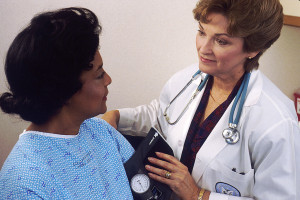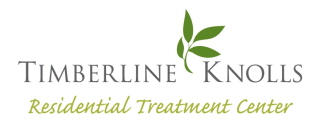
Contributor: Staff of Timberline Knolls Residential Treatment Center
“But, it’s prescribed!” I hear this statement many times during the assessment process in my position as a Certified Drug and Alcohol Counselor. Many people using prescribed drugs can end up needing treatment for prescription drug addiction which often requires residential treatment for addiction.
Some examples of commonly abused prescription medications include opioids which are used for pain (Vicodin, Oxycontin), depressants which are used for anxiety and sleep (Valium, Xanax), stimulants which are used for Attention Deficit Hyperactivity Disorder and narcolepsy (Adderall, Concerta, Ritalin), and over-the-counter (OTC) such as cough and cold medications (Dextromethorphan also known as “DXM”).
What Prescription Drug Addiction Looks Like
Some warning signs of prescription drug addiction can be:
- Taking someone else’s prescription medication for your own usage
- Taking your own prescribed medication but taking more than the prescribed dosage
- Taking your prescribed medication for other purposes than what it is prescribed for
Some addictive behaviors with drugs and alcohol can be:
- Using multiple pharmacies to avoid being noticed during more frequent refills.
- Seeking out medications that are not actually needed (i.e. pain medications even when the person is not in physical pain).
- Drinking alcohol while using prescription medications.
- Changing the route of administration from oral to snorting, chewing, or injecting intravenously.
When prescription medications are taken as prescribed, they safely treat mental and physical symptoms. When abused, the prescriptions affect the brain similarly to illicit substances. For people who have a prescription drug addiction, they may not see it as an issue or problem because they deny that their use causes their life to be unmanageable.
Denial of a problem is not uncommon for those struggling with addiction to drugs and alcohol. It is difficult to face addiction for everyone and compassion and honesty will go a long way toward helping an individual come to terms with their addiction and need for substance abuse treatment.
The Initial Residential Treatment For Addiction Experience
Much like other drug rehabilitation facilities, when someone enters into treatment for prescription drug addiction, they are unable to continue the use of that substance upon entering, even if it is prescribed.
In almost all cases, the ultimate goal of the individual and their loved ones is to empower the person to stop abusing drugs or alcohol. There are many cases where the individual enters treatment with reluctance and is uncertain that they truly want to abstain from the drugs or alcohol that are meeting a deep need in their life. In these cases, it is important that the treatment center be able to assist the individual in finding the internal motivation to recover. Encouragement and support from others in incredibly helpful, but the individual struggling with substance abuse must ultimately make the decision to choose recovery.
The National Institute of Health suggests that substance abuse treatment should enable the addiction sufferer to do the following:
- Cease drug use
- Refrain from taking drugs
- Be a contributing member of society
During the first 24 to 72 hours, the resident may feel heightened anxiety, restlessness, discomfort, trouble sleeping, or inability to stay awake due to the absence of the prescriptions they were addicted to.
The resident will meet with a psychiatrist and medical doctor on a weekly basis to ensure that moving forward they are taking the correct medications. The psychiatrist can suggest genetic testing to find out when medications react to each individual’s genetic makeup, as well as psychiatric testing to determine whether there might be any underlying mental health diagnoses. There is around-the-clock nursing staff to safely dispense medications.
Importance of Individualized Treatment for Prescription Drug Addiction
Each resident is given a primary therapist to work with on an individual basis; this person may also participate in family therapy. The resident will develop realistic goals that they wish to accomplish while they are in treatment. The residents attend all-day group programming to address their recovery needs; this provides structure and balance.

Residents also have the opportunity to attend 12-Step meetings where they are able to obtain a Sponsor who will guide them through the 12-Step model of recovery and hold them accountable to their short and long term goals in recovery.
Once residents have met their goals, they are able to step down to a lower level of care, such as Partial Hospitalization Program (PHP) or Intensive Outpatient (IOP), to continue using the skills they have gained while applying more of their own self-motivation.
Recovery remains a lifelong commitment and support may be needed beyond formal treatment modalities. Many find 12 step groups, support groups, individual counseling, etc. to be helpful in maintaining a sober lifestyle.
Life continues to have ups and downs, but one is far more empowered to make good decisions and take wise actions when sober. The journey to recovery from drug or alcohol addiction is worth the effort.
References:
NIDA. (2019, January 17). Treatment Approaches for Drug Addiction. Retrieved from https://www.drugabuse.gov/publications/drugfacts/treatment-approaches-drug-addiction on 2019, July 16
https://www.drugabuse.gov/publications/principles-drug-addiction-treatment-research-based-guide-third-edition/preface
Thank you to Timberline Knolls for providing this article.

(Advertisement)
Timberline Knolls is a leading residential treatment center for women and adolescent girls, ages 12 and older, with eating disorders, substance abuse, trauma, mood and co-occurring disorders. Located in suburban Chicago, residents receive excellent clinical care from a highly trained professional staff on a picturesque 43-acre wooded campus. An adult partial hospitalization program (PHP) is also available in nearby Orland Park, Ill., for women to step down or direct admit. For more information on Timberline Knolls Residential Treatment Center, call 630-755-5173. We are also on Facebook – Timberline Knolls, LinkedIn – Timberline Knolls and Twitter – @TimberlineToday.
The opinions and views of our guest contributors are shared to provide a broad perspective of addictions. These are not necessarily the views of Addiction Hope, but an effort to offer a discussion of various issues by different concerned individuals.
We at Addiction Hope understand that addictions result from multiple physical, emotional, environmental, and genetic factors. If you or a loved one are suffering from an addiction, please know that there is hope for you, and seek immediate professional help.
Published on July 16 2019
Reviewed and Updated by Jacquelyn Ekern, MS, LPC on January 12, 2021
Published on AddictionHope.com


